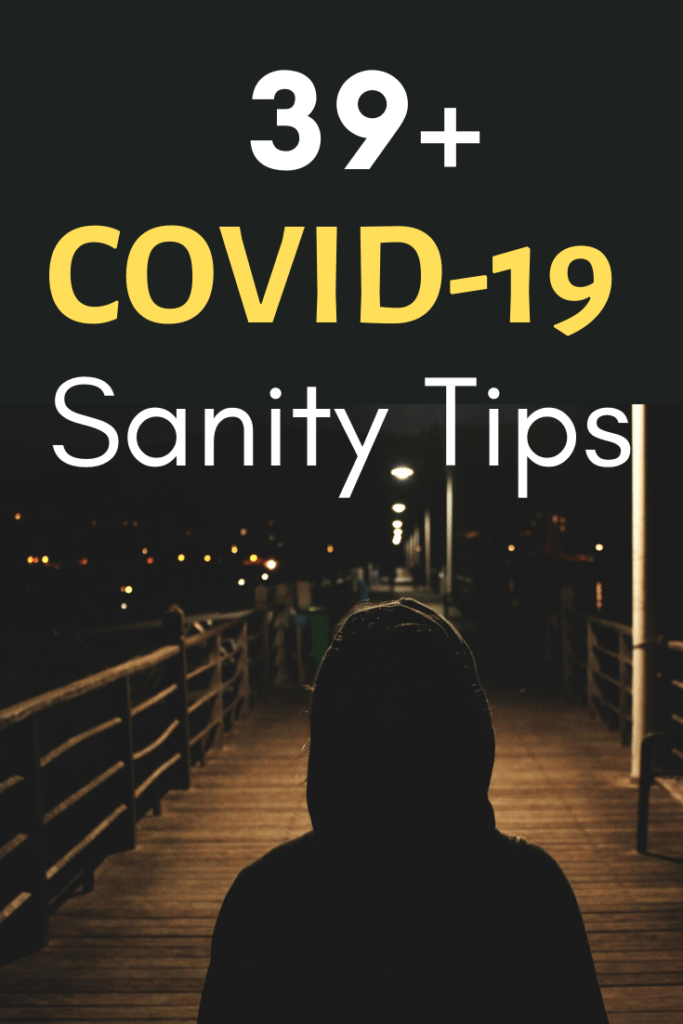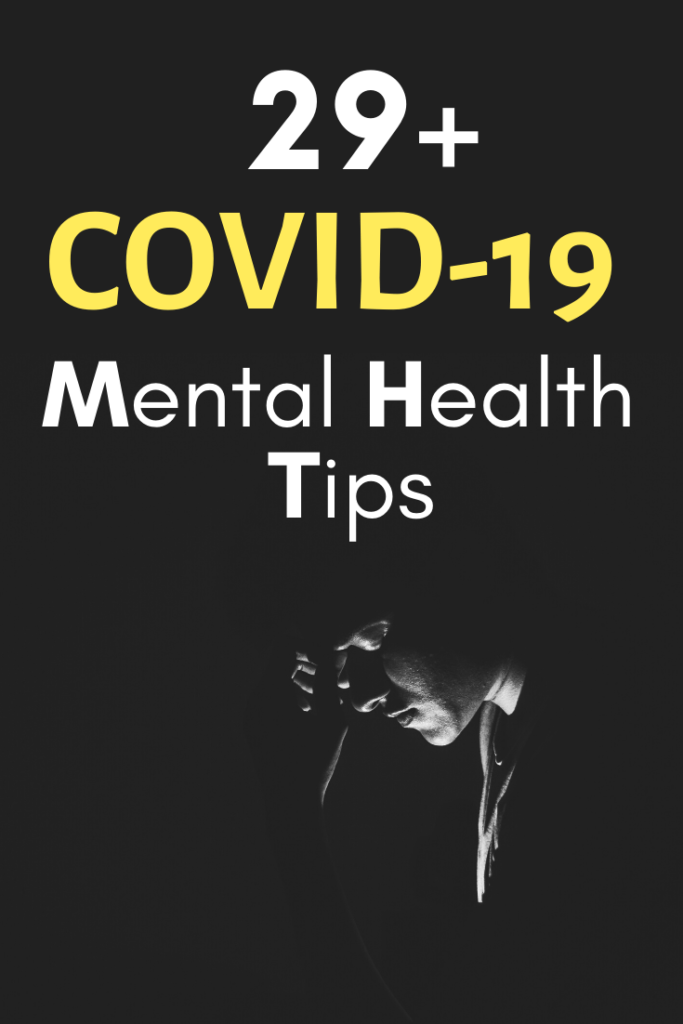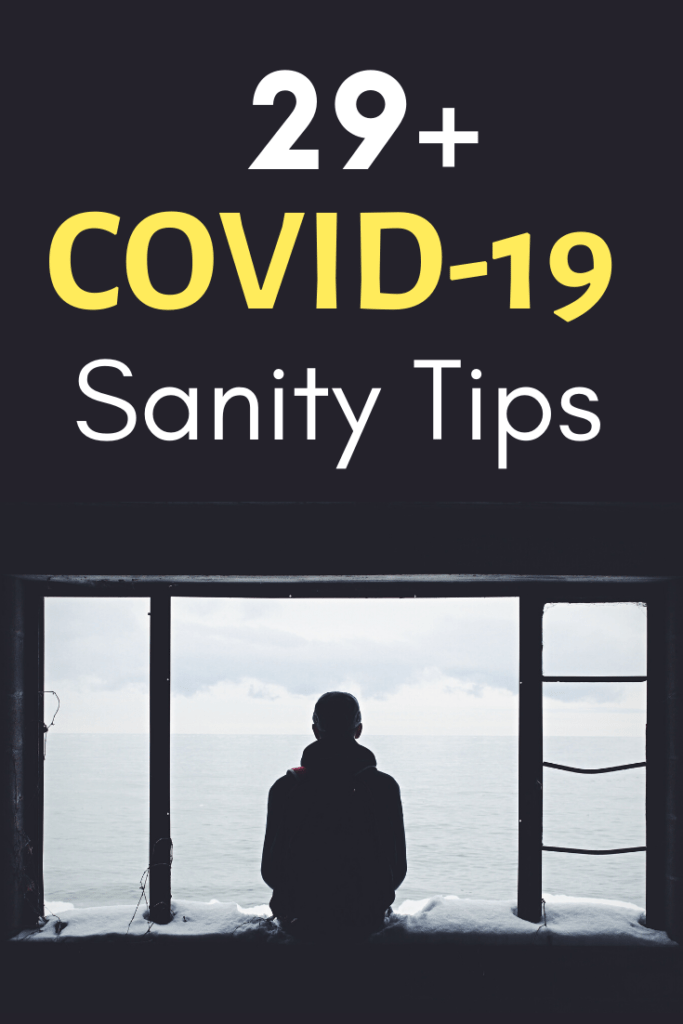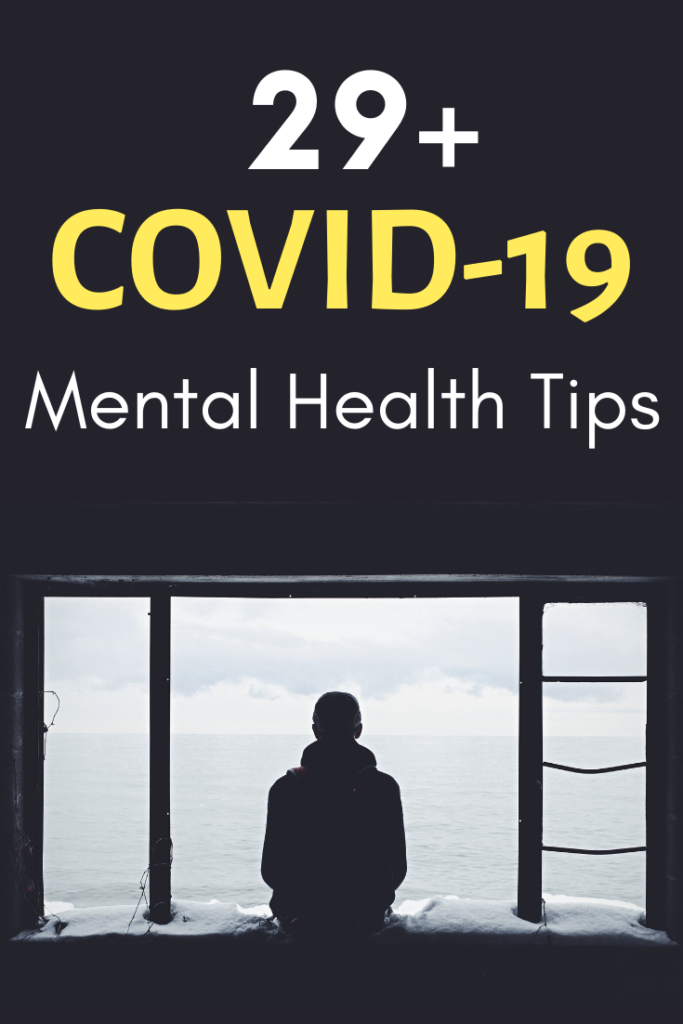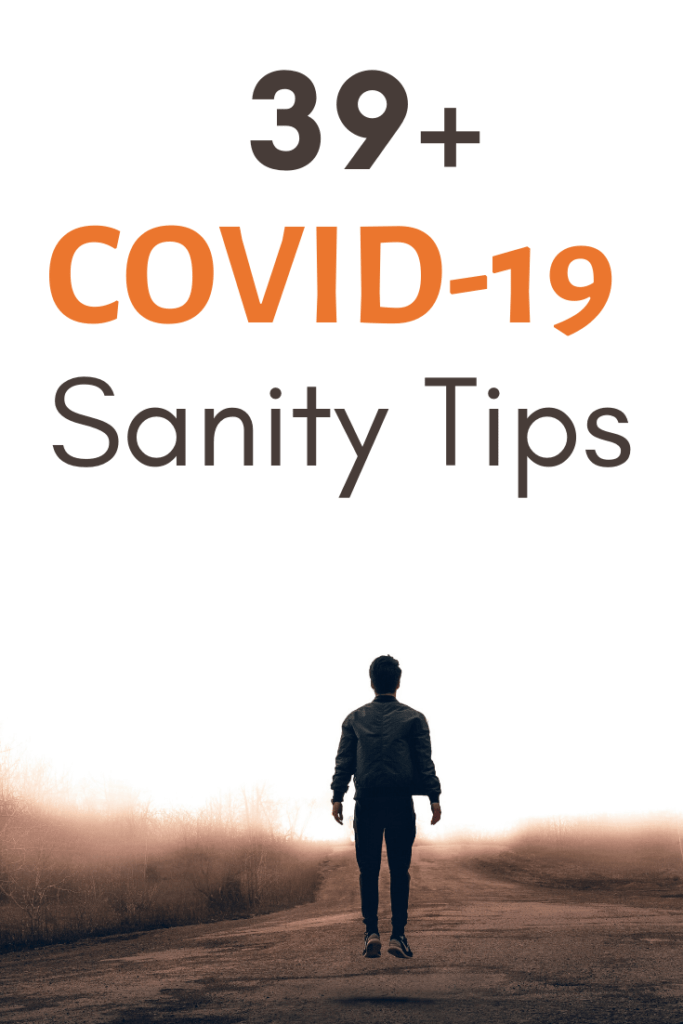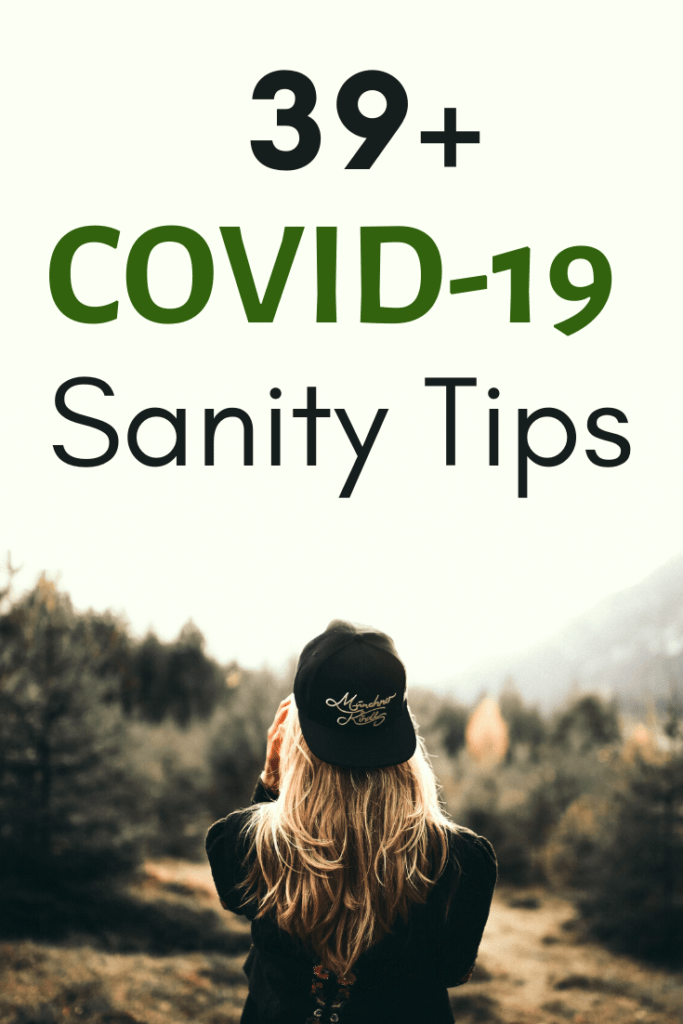
Table of Contents
Social contact increases well-being. But that’s on pause right now.
Going to work helps ensure our basic needs are met. But many of us can’t do that right now.
Taking a break from family allows for calm. But many of us cannot take a physical break right now.
Going to the gym helps release feel-good endorphins. But gyms are closed right now.
Suddenly, we are stripped of many of the things that kept us sane.
It may be easy to feel helpless during coronavirus 2019.
But we aren’t.
It’s normal to feel overwhelmed and anxious and stressed and akldjaldskjalfskjalsjkasl about this.
It’s okay to feel that way. We are in a pandemic, after all.
Many of our lives have changed either temporarily or permanently.
And the vast majority of us are uncertain about how COVID-19 will fully impact us.
For some of us, our savings haven taken a dent.
For others, we have no idea how we will eat tomorrow.
In any case, it’s anxiety-inducing.
But it can be helpful to find ways to combat your chaotic mental state.
In this post, we’re sharing 39 ideas of how you can keep your mental health in check during COVID-19. If you need immediate help, scroll to the bottom for crisis hotlines and chats in your country.
29 Mental Health Coronavirus 2019 Tips
Is the pandemic getting to your head. Here’s our suggestions.
#1 Clean
Since social isolation means no friends over, it can be tempting to not clean your home. After all, who will know? You, that’s who. I notice that when the dishes are piling up and things are getting cluttered, my mind unknowingly becomes overwhelmed. And when I clean, there’s a sudden lift of that emotion. If you’re the same, force yourself to clean up (tip: listening to podcasts makes chores more fun!).
#2 Stick Close to Your Schedule
If you’re not an essential worker, regardless of whether you can work from home, try to stick to your schedule. Get up at the same time, get ready, brush your teeth, walk the dog, eat, etc. Eat lunch around a similar time and don’t stay up too late, either. Keeping to your before-COVID-19 schedule can help make things seem more normal. If you have a big schedule shift along with a big life shift, you can amplify “change anxiety.”
#3 Limit News
Yes, stay informed and do your part to keep yourself and others safe. But beyond that, the news doesn’t need to you watch it 24/7. If you feel like the ever-evolving stories are taking a toll on your mental health, take a break! Turn it off. Read something more uplifting.
#4 Limit Social Media
You don’t need to know what every celebrity and all of your friends think about COVID-19 every hour. While social media is great for keeping in contact, if reading all of the posts, tweets and pictures are giving you anxiety, stop. Since most of the posts online are about coronavirus right now, that may mean keeping off the internet for a bit.
#5 Stop Trying to Be Ultra Productive
With all this time off, now’s a great time to start a new project, business or take a new course, right? Maybe (and we’ve included some tips for that in this post). But it isn’t great advice for everyone all the time. While keeping busy can help, you’ll probably have to eventually feel your feelings. And, for some, the pressure to be productive can be overwhelming. If this sounds like you, realize that we’re living in unprecedented times. It is stressful. It’s okay to feel that stress and take a step back to gain perspective and figure out what this means to you.
#6 Journaling
In a 2010 study, 70 volunteers were asked to write about their emotions in an online journal. Researchers found that journaling was associated with decreased mental distress, increased well-being and fewer depressive symptoms and anxiety after 1 month. They also had greater resilience after the first and second month. Since we could all use a little resiliency after this, now could be a good time to start journaling. You should simply start by writing what you did today or how you feel. Still stuck? Here are 50 Journal Prompts For Mental Health From Therapists.
#7 Open Your Blinds
With everyone home and bored, it can be tempting to pull the blinds so others can’t watch you. But if it’s a sunny day, open them. Some sunlight to remind us that an outside world still exists can give you a quick boost.
#8 Open Your Windows
Spring is here and it’s getting warmer, allowing you to open your windows without getting too cold. The fresh breeze and scents of summer coming can be a natural pick-me-up.
#9 Make Your Bed
Admiral William H. McRaven wrote a book titled “Make Your Bed,” arguing that starting off the day with one accomplishment leads to others. I’ve been in this habit since I was a teenager and I can say that it’s a quick thing that makes me feel more adult. It makes the room look cleaner, it makes me feel like I’m my own parent, and it feels good that I stuck to a habit.
#10 Spend Time on Happy Hobbies
Before COVID-19 you may have only had limited time to paint, bake or learn the tambourine. But this time at home gives you extra opportunities to do those things. Pick a hobby that takes your mind off of stresses and leaves you feeling calmer.
#11 Listen to Podcasts
Take it from someone who lives alone, works alone and is generally a loner: Podcasters are your friends (even if they don’t know it). You can choose a podcast about something you’re interested in to kill time, but during these times, I really recommend something a bit inspirational. That means different things to everyone. Here’s a few ideas:
- Spirituality
- Psychology
- Business/entrepreneur mindset
- Self Help
- Oprah’s SuperSoul Conversations or interviews with inspiring people
- Personal recommendation: Type in “Brene Brown” and listen to any interview
#12 Learn a New Skill
Always wanted to try magic? Learn to do the splits? Bake a pie? Putting your nervous energy into learning something new is a good way to take your mind off of the world.
#13 Acts of Kindness
Multiple studies have shown that doing good deeds can help increase happiness and well-being while decreasing anxiety. Whether you have money to spare or none at all, there’s many options. Here’s our list of XX Meaningful COVID-19 Acts of Kindness.
#14 Staycation
I’ve written before that COVID-19 isn’t your vacation. It isn’t. But you’re laid off from work, why not make this into a staycation for the first week? That means a vacation where you stay at home. I repeat, at home. Sure, less adventure, but also free. So what exactly do you do during a staycation? Whatever you damn well please. Sleep it some days. Catch up on shows. Order take out. Transform your living room into the Bahamas. Trade your suit for a hula skirt. Insist that family members only speak to you in your chosen local language. Really, it’s up to you.
#15 Exercise
Even if you never went to the gym in the first place. Multiple studies have shown the positive effect that exercise has on depression and anxiety. For example, one analysis of research concluded that physical activity has shown to be a great promise in alleviating depression symptoms. If you regularly exercise, see if your gym is hosting any Facebook or Instagram lives with at-home workouts. If not, YouTube has plenty of workouts designed to not piss off your apartment neighbors. If you don’t exercise, start small. Go out for a walk or YouTube a beginner yoga or Pilates class. Or, just blast some music and dance around your home.
#16 Foster a Pet
Let’s get this out of the way first: Having any pet, even a foster pet, is still a big responsibility that you shouldn’t take lightly and should only do if you’re ready for. With that being said, it’s a great way to “give back” during COVID-19. Many shelters are reaching full capacity as some owners are giving up pets during this time. Fostering means that you temporarily take care of an animal before they find their forever home. If you live alone, this is an especially great tip. I have no idea where I would be without my dog. Honestly.
#17 Move Around Your Home
Spending all day on the couch is bound to feel boring and get depressing. Even if you live in a tiny apartment like me, find small ways to spice it up. For example, if you’re working from home, move your laptop to different areas. Move your favorite chair around. Is your desk easy to move? Sit on different ends of the sofa. Even tiny changes can take some monotony out of home life.
#18 Dress Normally— Or Don’t
There’s advice from so many people on Twitter suggesting that you dress and get ready as normal, even if you’re working from home. This can help some people feel more normal. However, for others, it can have the opposite effect. If you need to throw on an “acceptable” shirt for a Zoom meeting but you’re just wearing underwear on the bottom, that’s ok! (just remember not to stand up during your call). We’re going through a pandemic. You’re allowed to be comfortable.
#19 Go Outside
So here’s the deal: If you have COVID-19 or have symptoms of it, don’t go outside. Everyone else, you’re okay to go outside, as long as you’re keeping 6 feet between you and other people outside of your home. You can walk, jog, hike or simply stare up at the sky. But remember—if an area or park is crowded, leave. Even if you’re not an outdoorsy person, getting outside can be important while we’re stuck inside our homes. Plan ahead and force yourself to go out, whether it be a sunset walk or an early bird jog.
#20 Watch a Comedy or Stand-Up
I’m getting really into stand-up comedies lately. That’s because I can do other things while I listen to them and they make me feel a little better. Even just one moment of me almost spitting out my coffee helps.
#21 Stay Social
Remember that “social distancing” is more like “physical distancing.” Our mental health needs us to remain social, even though we can’t see each other. We’ve come up with some inventive ways to hang out with technology. Read 43 Ways to Stay Social While Socially Distancing.
#22 Practice Self-Compassion
Self-compassion means acknowledging that this situation is difficult without downplaying it. Instead of being hard on yourself, treat yourself like you would a best friend or child. Give yourself permission to be imperfect and realize that everyone makes mistakes and goes through setbacks. We can only do the best we can. How does this look in practice? Here’s an example:
- Me: You crossed off 2/8 to-do items but you still have 6 left to do and it’s already 8PM. Literally, what have you done all day? [NOT HELPFUL]
- Me with Self-Compassion: I still got 2 things done and my list was pretty big. Despite what I feel “society” expects, it’s normal for me to feel anxious during a worldwide pandemic. Sometimes, that may lessen my productivity. I think that’s normal, even if other people aren’t saying it. I also noticed that I’m wasting a lot of time on Twitter, which I think is increasing my anxiety. I realize this is a way I try to gain control of the uncontrollable, but maybe I can try to curb by tweeting tomorrow. [HELPFUL]
For some more concrete examples on how to practice self-compassion, check out 8 Exercises by Leading Self-Compassion Researcher. These practices range from meditations to journaling to simple contemplations.
#23 Realize the Value in Solidarity
If you’re someone who’s dealt with anxiety, depression or other mental health issues before COVID-19, see if you can take comfort in the bigger sense of solidarity now. Because of isolation, many more people are affected and starting to care about mental health. It shouldn’t take a crisis for people to care. And we should never wish a crisis upon anyone in order for them to start caring. But, I think more people are starting to take mental health seriously because of this. So, maybe one takeaway is that people are less judgmental right now. You were never alone. But now you’re especially not alone. My hope is that this realization eventually filters down into community programs and inspires universal mental healthcare—these outcomes can long outlive impacts of the virus.
#24 Realize This Will Pass
The spread of COVID-19 won’t last forever. The measures we’re taking now are to ensure that we can go back to normal life sooner. Try to keep in mind that this situation is only temporary, even if it feels like a long time. Of course, the effects of this pandemic will outlast the actual virus. Even knowing the virus will pass, many are anxious about the lasting impacts it will have on their finances, career or life. I don’t have any answers. Except for the next tip.
#25 Try to Have Hope
Sometimes, in our darkest times, we literally have nothing except our bodies, our seemingly decaying minds—and hope. Everyone’s situation is different, so I’d could be lying if I said the financial impacts of this will be non-existent a year from now. The truth is that no one knows how long this will last for the world, let alone you specifically. But what I can say is that, if we hold onto hope long enough, it will eventually pass. Even if it feels like it never will. It will. During COVID-19, I think we need to hold reality in one hand, perspective in the other, and hope in both.
It can be helpful to tie hope in with a practice. For some that could be prayer or meditation. For others that could be setting up a crystal grid, sending “good vibes,” or smiling at strangers (from 6 feet away, of course).
#26 FREE Mental Health Chat Rooms
Chatrooms still exist! Here’s some for mental health. These are typically monitored by peer-to-peer support moderators.
- Healthfulchat.org— Rooms specific to anxiety, depression, bipolar, eating disorders, etc.
- 7Cups— You can join problem-specific mental health rooms, or you can wait to talk to a peer support person one-on-one.
- Please email me any others!
#27 FREE Mental Health Crisis Online Chats (One-on-One)
If you’re contemplating suicide, you should talk to someone about that ASAP. Organizations are staffed with non-judgmental volunteers who can help.
- U.S. National Suicide Prevention Chat
- NYC Well’s Mental Health Chat
- Crisis Services Canada chat
- Ontario’s Crisis Chat
- Australia’s ReachOut Chat for young people between 18-25
- Canada’s Youth Space chat
- Canada’s Kids Help Phone chat
#28 FREE Mental Health Crisis Hotlines
If you’d prefer to call, here’s some crisis hotlines.
- U.S. National Suicide Prevention Line: 1-800-273-8255
- NYC Well Mental Health hotline: 1-888-692-9355
- Crisis Services Canada line: 1-833-456-4566
- Canada’s Kids Help Phone line: 1-800-668-6868
- UK’s Samaritan helpline: 116 123
- UK’s Kid’s Help Line: 0800 1111
- UK’s HopeLine for Young People: 0800 068 4141
#29 FREE Mental Health Crisis Text Lines
Texting more your thing?
- NYC Well Mental Health text line: Text WELL to 65173
- Crisis Services Canada text line: 45645
- Canada’s Youth Space text line: 778-783-0177
- Canada’s Kids Help Phone text line: 686868
- UK’s Samaritan email service: [email protected]
- UK’s HopeLine for Young People text line: 07860039967
How Are You Keeping Your Mental Health in Check? Please Email Me Any More Ideas to Add to the List 🙂
